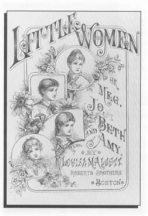
Once, when I was in a writing group of women, all of us just beginning to publish, we went around the room saying what books had made us want to be writers. Little Women was the only one on everyone's list, and for me the first I thought of. I read it dozens of times, growing up, and reread it, not long ago.
I think it’s easy for a contemporary reader to miss how powerfully subversive this book was and is. It's a great example of how the actions of characters can play against the accepted mores of the time. Yes, there are characters who preach (Marmee, nicely; others less so) about the way young women should suppress critical thoughts, envy, ambition, anger, desire, and need. (Really, how much has this changed?) But what the reader remembers is how Jo's actions show the path of daring (warning: plot spoilers ahead): selling her hair to get money to help her mother, writing dramatic short stories and making money at it, walking from Concord to Boston to see an editor, rejecting the rich man she doesn’t love and choosing the poor man she wants.
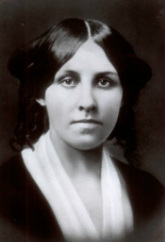 Louisa May Alcott, at about 25.
Louisa May Alcott, at about 25. Louisa May Alcott herself lived a life with a large share of selflessness. When Little Women was published, she was 35 and in ill-health after typhoid contracted while nursing during the Civil War. To earn money for the family’s support (because none of her philosopher father Bronson Alcott’s idealistic schemes paid), Louisa had from an early age been sewing, teaching, and writing under her own name. By the mid 1860s she was also, under a pseudonym, writing sensationalist stories full of drama (and notably ruthless characters). Little Women paid off the family debts., and Alcott ultimately published 30 books. Little Women (and its successors, like Jo’s Boys) also opened up a category of writing that centered on recognizable American young people coming of age in recognizable American places. Tom Sawyer, 1876, seems to me to owe some debt to Alcott, and the same could be said for the whole rich tradition of American Young Adult fiction.
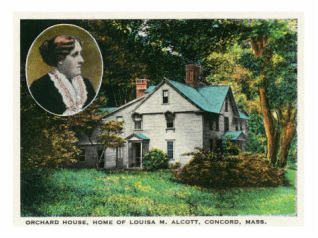
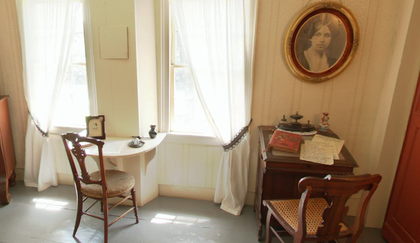 In Louisa's chamber, half moon desk at left and a later desk—not very big either—at right.
In Louisa's chamber, half moon desk at left and a later desk—not very big either—at right. 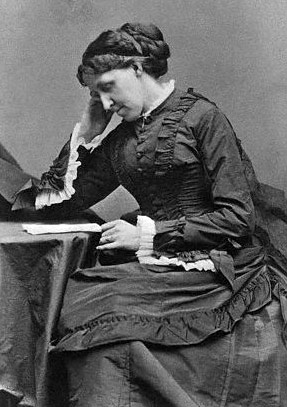
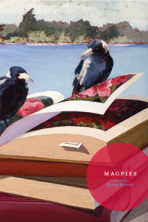
 RSS Feed
RSS Feed